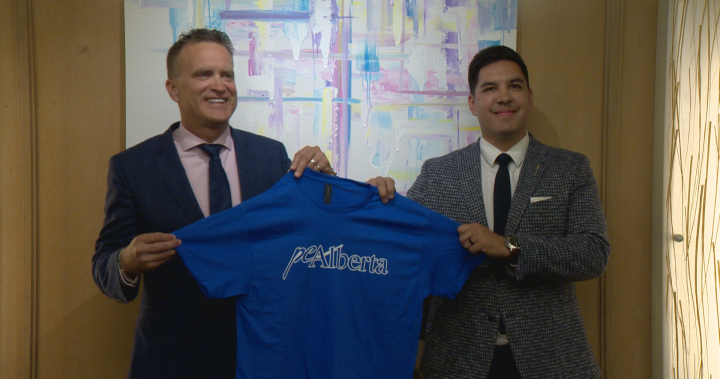The winds of political change are swirling through Alberta again, with familiar faces leading what some might call a blast from the past. Having covered Calgary politics for over a decade, I’ve witnessed multiple iterations of conservative realignment in our province. This latest development, though, carries a particularly interesting twist.
Former UCP MLAs are throwing their support behind reviving the Progressive Conservative Party of Alberta – a name that dominated our provincial landscape for 44 years before the conservative merger that created the UCP in 2017.
“There’s a growing sense that many Albertans feel politically homeless,” Richard Gotfried, who served as a PC MLA before transitioning to the UCP, told me during a conversation at a local Calgary café last week. “The pendulum has swung too far to the extremes, leaving a vast, underrepresented middle ground.”
Gotfried isn’t alone in this sentiment. He’s joined by former UCP MLAs Dave Rodney and Richard Starke, who’ve publicly voiced support for bringing back a more centrist conservative option to Alberta’s political landscape. Starke, notably, refused to join the UCP when it formed, concerned about what he called “extreme elements” within the Wildrose contingent.
The timing is significant. With Premier Danielle Smith’s approval ratings fluctuating and the NDP maintaining strong opposition numbers, there’s a palpable tension in Alberta’s political atmosphere. Recent polling from Janet Brown Opinion Research suggests nearly 30 percent of Albertans don’t feel their views are represented by current political options.
“We’re seeing the classic Alberta cycle,” explains Dr. Lisa Young, political scientist at the University of Calgary. “Conservative parties here tend to fragment when in power, then reconsolidate in opposition. What’s unusual is seeing this fragmentation happening while the UCP still holds government.”
The revived PC party would position itself as a moderate alternative to both the UCP and NDP, potentially drawing fiscally conservative but socially progressive voters who’ve felt alienated by recent political developments.
Calgary business leader Mary Johnston, who previously supported both PC and UCP campaigns, echoed this sentiment during our Chamber of Commerce meeting last month. “Many of us want fiscal responsibility without the culture wars. We want evidence-based policy rather than ideological battles.”
For those of us who’ve watched Alberta politics evolve, there’s a certain irony here. The United Conservative Party was formed specifically to prevent vote-splitting that allowed the NDP to win in 2015. Now, some of the very architects of that union are potentially contributing to a similar scenario.
Premier Smith’s office declined my request for specific comment, but government spokesperson Samuel Williams stated, “Albertans elected a strong UCP majority government in 2023 based on our vision for a free and prosperous province. We remain focused on delivering results, not political distractions.”
The process to register a new political party in Alberta isn’t simple. Elections Alberta requires collecting signatures from 8,473 eligible voters – 0.3 percent of the total eligible voting population. That’s before tackling the financial and organizational challenges of building a competitive political machine.
“The barriers to entry are significant,” notes political strategist Janet Brown. “But there’s genuine frustration among traditional PC supporters who feel the UCP has moved too far toward populism and away from pragmatic governance.”
This political reshuffling occurs against the backdrop of Alberta’s continuing economic evolution. With oil prices stabilizing around $75 per barrel and diversification efforts showing mixed results, economic management remains the top issue for most Alberta voters according to recent polling.
Calgary, specifically, has much at stake. Our city continues to navigate a complex economic transition, with downtown vacancy rates slowly improving but still challenging at around 30 percent. The technology sector shows promise, but many traditional energy workers remain concerned about their future.
Having covered multiple provincial elections, I’ve learned that Alberta voters are far more pragmatic than ideological. They tend to support parties they believe will deliver competent governance and economic stability rather than adhering strictly to political labels.
Whether this PC revival gains significant traction remains to be seen. But it represents something important: the ongoing evolution of Alberta’s political identity as we navigate complex economic and social transitions in an increasingly uncertain world.
For now, Gotfried and his colleagues are focused on the basics – gauging interest, collecting signatures, and building organizational infrastructure. They hope to have the party officially registered before the end of 2024, giving them time to prepare for the next provincial election scheduled for 2027.
As I watch this development unfold, I’m reminded that Alberta’s political landscape has never been static. It’s a reflection of our collective identity – pragmatic, independent, and constantly adapting to changing circumstances.







